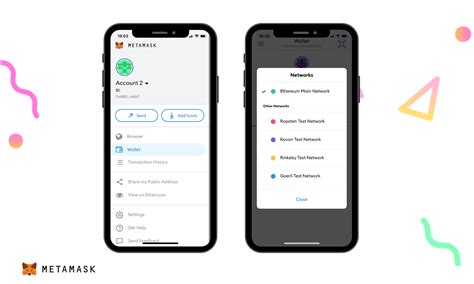Sending Tokens Outside of Ethereum with MetaMask: A Guide
MetaMask is one of the most widely used web browser extensions for interacting with the Ethereum blockchain, allowing users to send and receive tokens on the Ethereum network. However, as you can see, there’s more to it than just sending Ethereum. In this article, we’ll explore how to send other types of tokens using MetaMask without relying on extensions or downloading any additional software.
Why Send Tokens Other Than Ethereum?
Sending tokens outside of the Ethereum ecosystem can be beneficial for a variety of reasons:
- Key Smart Contracts

: Some token projects require the implementation of smart contracts that don’t work with the main Ethereum network.
- Decentralized Finance (DeFi) Applications: DeFi platforms often leverage alternative blockchain networks, such as Binance Smart Chain or Polygon, which may not support MetaMask or Ethereum.
- Custom Token Protocols: Some token projects require specialized token protocols that cannot be implemented on the Ethereum network.
How to Send Tokens with MetaMask
While there is no specific feature on the MetaMask documentation website that allows you to send tokens other than Ethereum, you can still use it to send other types of tokens by following these steps:
- Connect Wallet: Make sure your MetaMask account is connected and has sufficient funds.
- Get Token Contract Address
: Find the token contract address of the token you want on the project website or through a third-party API.
- Use the wallet.send method: Use the wallet.send() method to send the access key from your MetaMask wallet. You will be prompted to enter transaction information, including the sender’s billing address and the recipient’s contract address.
Here is an example of using the wallet.send method in JavaScript:
const metamask = require('web3').Web3;
const contractAddress = '0x...'; // Token contract address
const senderAddress = '0x...'; // Your MetaMask account address
metamask accounts.get().then((accounts) => {
const tx = {
from: senderAddress,
to: contractAddress,
value: '1', // Amount of token to send (wei)
gas: '20000', // Gas transaction limit
nonce: Math.floor(Data.now() / 1000) // Current nonce value
};
metamask accounts.get().then((accounts) => {
const tx = new web3.ethTx(tx);
return tx.send();
});
});
Conclusion
Although MetaMask does not provide a built-in feature for sending tokens other than Ethereum, you can still use it to send various types of tokens by following the steps above. Always make sure you have the correct contract address and transaction details before proceeding.
As with any cryptographic activity, pay attention to best security practices when handling sensitive information such as wallet addresses and transaction details.

